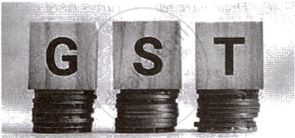Advertisements
Advertisements
प्रश्न
Explain the taxation types.
स्पष्ट करा
उत्तर
Taxation Types:
There are four types of Taxation:
- Proportional Tax
- Progressive Tax
- Regressive Tax and
- Degressive Tax
- Proportional Taxation: is a method, where the rate of tax is same regardless size of the income. The tax amount realized will vary in the same proportion as that of income. If tax rate is 5% on income, Mr. X getting an income of Rs. 1000 will pay. Rs. 50, Mr. B will be getting an income of Rs. 5,000 and will pay tax of Rs. 50. In short, proportional tax leaves the relative financial status of taxed persons unchanged.
- Progressive Taxation: is a method by which the rate of tax will also increase with the increase of income of the person a case of progressive taxation if a person with Rs. 1000 income per annum pay a tax of 10% (i.e., Rs. 100), a person with an income of Rs. 10,000 per annum pays a tax of 25% (i.e., Rs. 2,500), and a person with income of 1 lakh per annum pay the tax of 50% that is Rs. 50,000.
- Regressive taxation: it implies that higher the rate of tax furrow income groups than in the case of higher-income groups it is the very opposite to progressive taxation.
- Digressive Taxes: which are to mildly progressive, hence not very steep, so that high-income earners do not make a due sacrifice on the basis of equity, are called digressive. In digressive taxation, a tax may be progressive up to a certain limit; after that it may be charged at a flat rate.
shaalaa.com
Types of Taxes
या प्रश्नात किंवा उत्तरात काही त्रुटी आहे का?
APPEARS IN
संबंधित प्रश्न
Correct one out :
Which one of the following tax is a direct tax?
Write name of taxation types and draw its diagram.
Which of the following statement is correct about GST?
- GST is the ‘one point tax’.
- This aims to replace all direct taxes levied on goods and services by the Central and State governments.
- It will be implemented from 1 July 2017 throughout the country.
- It will unified the tax structure in India.
Sales tax is an example of ______ taxation.
Write a short note on Excise duty.
Give an account of Tool tax and Road Tax.
The tax whose rate remains unchanged irrespective of the income of the taxpayer is called as ______.
Identify the merit of direct tax from the following:

- What type of tax is this?
- When do we pay this tax?
Explain the term impact of a tax?
